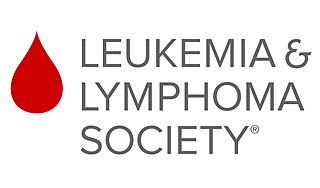
The Leukemia & Lymphoma Society (LLS), a 501(c)(3) charitable organization founded in 1949, is the largest voluntary health organization dedicated to fighting blood cancer in the world. The LLS's mission is to cure leukemia, lymphoma, Hodgkin's lymphoma and myeloma, and improve the quality of life of patients and their families.

Sidney Farber was an American pediatric pathologist. He is regarded as the father of modern chemotherapy for his work using folic acid antagonists to combat leukemia, which led to the development of other chemotherapeutic agents against other malignancies. Farber was also active in cancer research advocacy and fundraising, most notably through his establishment of the Jimmy Fund, a foundation dedicated to pediatric research in childhood cancers. The Dana–Farber Cancer Institute is named after him.

My Sister's Keeper (2004) is the eleventh novel by the American author, Jodi Picoult. It tells the story of thirteen-year-old Anna Fitzgerald, who sues her parents for medical emancipation when she discovers she is supposed to donate a kidney to her elder sister Kate, who is gradually dying from acute leukemia.
Tak Wah Mak, is a Canadian medical researcher, geneticist, oncologist, and biochemist. He first became widely known for his discovery of the T-cell receptor in 1983 and pioneering work in the genetics of immunology. In 1995, Mak published a landmark paper on the discovery of the function of the immune checkpoint protein CTLA-4, thus opening the path for immunotherapy/checkpoint inhibitors as a means of cancer treatment. Mak is also the founder of Agios Pharmaceuticals, whose lead compound, IDHIFA®, was approved by the FDA for acute myeloid leukemia in August 2017, becoming the first drug specifically targeting cancer metabolism to be used for cancer treatment. He has worked in a variety of areas including biochemistry, immunology, and cancer genetics.

Dana–Farber Cancer Institute is a comprehensive cancer treatment and research institution in Boston, Massachusetts. Dana-Farber is the founding member of Dana–Farber/Harvard Cancer Center, Harvard's Comprehensive Cancer Center designated by the National Cancer Institute, and one of the 15 clinical affiliates and research institutes of Harvard Medical School.
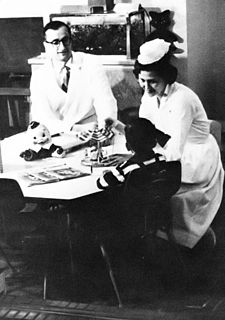
Emil "Tom" Frei III was an American physician and oncologist. He was the former director and former physician-in-chief of the Dana-Farber Cancer Institute in Boston, Massachusetts. He was also the Richard and Susan Smith Distinguished Professor of Medicine at Harvard Medical School.
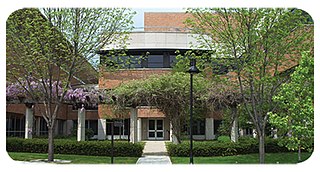
Lankenau Institute for Medical Research (LIMR), founded in 1927, is a nonprofit, biomedical research institute located on the campus of Lankenau Medical Center in Wynnewood, Pennsylvania, serving as the research division of the Main Line Health System in suburban Philadelphia. LIMR focuses on studies of cancer, cardiovascular, autoimmune, gastrointestinal and other diseases. It houses a center for population health research.

Jane Cooke Wright was a pioneering cancer researcher and surgeon noted for her contributions to chemotherapy. In particular, Wright is credited with developing the technique of using human tissue culture rather than laboratory mice to test the effects of potential drugs on cancer cells. She also pioneered the use of the drug methotrexate to treat breast cancer and skin cancer. Wright grew up in a medical dynasty and had many privileges that allowed her to obtain many successes in the medical field.
Emil J. Freireich was an American hematologist, oncologist, and cancer biologist. He was recognized as a pioneer in the treatment of cancer and use of chemotherapy and is often known as the father of modern leukemia therapy.

Lloyd John Old was one of the founders and standard-bearers of the field of cancer immunology. When Old began his career in 1958, tumor immunology was in its infancy. Today, cancer immunotherapies are emerging as a significant advance in cancer therapy.
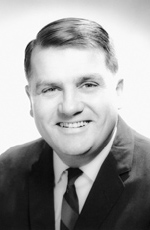
Donald Paul Pinkel is an American medical doctor who specializes in pediatric hematology and oncology. He was born in Buffalo, New York and graduated from Canisius High School in 1944. He has made contributions to cures for several forms of childhood cancer, including leukemia. He has received many awards and recognitions for his research work, including the Albert Lasker Award for Clinical Medical Research in 1972, the Kettering Prize for cancer research in 1986, and the Pollin Prize for Pediatric Research in 2003. Pinkel was the first director of St. Jude Children's Research Hospital in Memphis, Tennessee, serving from 1962 to 1973. He has also authored or co-authored numerous books, chapters in books, and journal articles.

Charlotte Friend was an American virologist. She is best known for her discovery of the Friend leukemia virus. She helped to establish the concept of the oncovirus, studied the role of the host immune response in disease development, and helped define modern retrovirology.

Charles L. Sawyers is a Howard Hughes Medical Institute (HHMI) investigator who holds the Marie-Josée and Henry R. Kravis Chair of the Human Oncology and Pathogenesis Program (HOPP) at Memorial Sloan Kettering Cancer Center (MSK). HOPP is a program created in 2006 that comprises researchers from many disciplines to bridge clinical and laboratory discoveries.

Brian J. Druker is a physician-scientist at Oregon Health & Science University, in Portland, Oregon. He is the director of OHSU's Knight Cancer Institute, Jeld-Wen Chair of Leukemia Research, and professor of medicine. In 2009, he won the Lasker-DeBakey Clinical Medical Research Award and the Meyenburg Award for his influential work in the development of Imatinib, commonly known as Gleevec, for the treatment of chronic myeloid leukemia (CML). He has been called "Oregon's best-known scientist".

The University of Chicago Medicine Comprehensive Cancer Center is a collaborative cancer research center based in Hyde Park, Chicago, United States. The Comprehensive Cancer Center is affiliated with the University of Chicago.

Georges Mathé was a French oncologist and immunologist. In November 1958, he performed the first successful allogeneic bone marrow transplant ever performed on unrelated human beings.
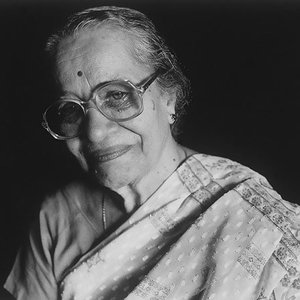
Kamal Ranadive, néeKamal Jayasing Ranadive was an Indian biomedical researcher who is known for her research in cancer about the links between cancers and viruses. She was a founder member of the Indian Women Scientists' Association (IWSA).

Min Chiu Li was a Chinese-American oncologist and cancer researcher. Li was the first scientist to use chemotherapy to cure widely metastatic, malignant cancer.
Peter Carey Nowell was a cancer researcher and co-discoverer of the Philadelphia chromosome. At the time of his death, he was the Gaylord P. and Mary Louise Harnwell Emeritus Professor of Pathology and Laboratory Medicine at the University of Pennsylvania.
Christine J. Harrison is a Professor of Childhood Cancer Cytogenetics at Newcastle University. She works on acute leukemia and used cytogenetics to optimise treatment protocols.
















